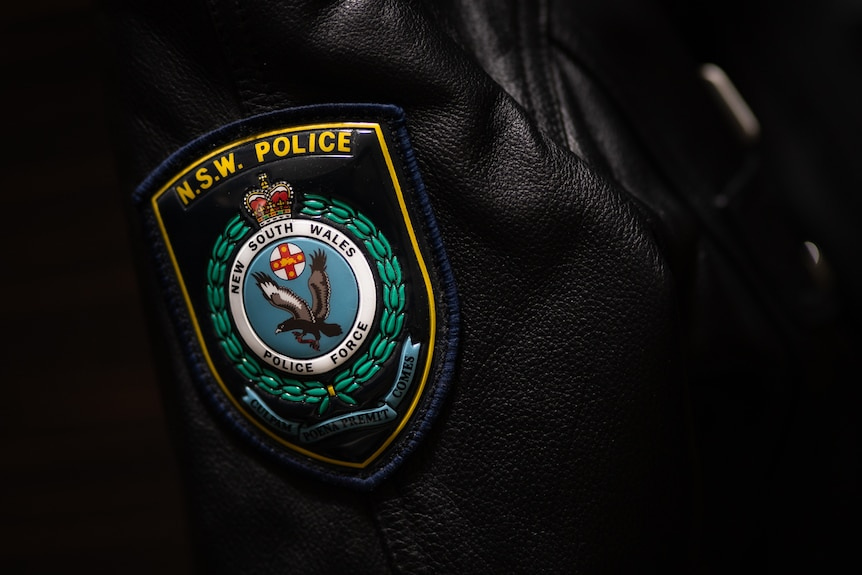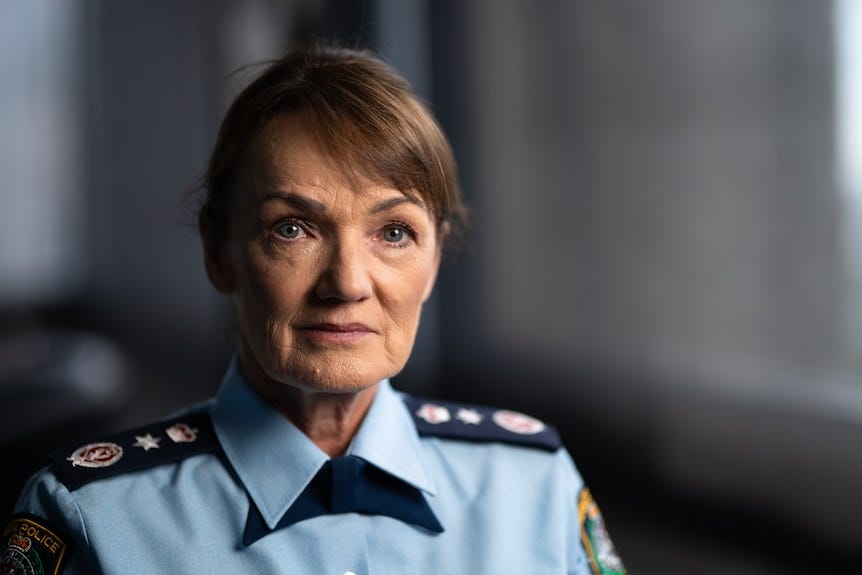What NSW Police Didn’t Want You to Hear
A former officer exposes a decade of misconduct, cover-ups, and silence inside one of Australia’s most powerful policing institutions.
From Officer to Institutional Dissenter
In 2013, Michelle Carlon commenced service with the New South Wales Police Force—a decision grounded in a profound commitment to justice, cultural integrity, and reformist ambition. Armed with a Bachelor in Policing and informed by her identity as a proud Aboriginal woman, Michelle envisaged a career wherein she could bridge the cultural chasm between over-policed communities and the institutions meant to serve them. Her optimism, however, was swiftly confronted by a performative engagement with diversity. While her image was appropriated for public relations purposes, her contributions were dismissed, her insights marginalised, and her advocacy subtly penalised.
"They loved my photo for their campaigns—but not my voice."
Rather than encountering an organisation driven by principles of service, equity, and lawful conduct, Michelle found herself embedded within a workforce characterised by structural hostility, institutionalised racism, and operational cynicism. Officers actively resisted displays of compassion, particularly toward vulnerable detainees, and frequently interpreted moral engagement as weakness or subversion.
"I was targeted for being kind."
Michelle remained within the force, not out of naivety, but from a belief that institutional transformation requires internal resistance. She would soon learn that the culture she hoped to change was not merely flawed—it was fortified against dissent.
A Culture Beyond Reform
Michelle’s disclosures detail what can only be described as a profound ethical and operational collapse. The conduct she witnessed—unreported by leadership, enabled by peer complicity, and normalised within procedural routines—transcended mere lapses in professionalism. She recounts the circulation of explicit crime scene imagery, including unauthorised photographs of deceased women and children, passed between officers through encrypted apps and private message threads. These materials were not used for case review or investigatory purposes, but rather as sources of amusement—further trivialising the bodies of those society had already failed.
"Photos were shared. Comments made. Bodies weren't sacred—they were punchlines."
These claims are not isolated. Other former officers, such as ex-crime scene investigator Kye, have corroborated Michelle’s testimony. What emerged was a pattern of normalised misconduct, where victims were reduced to caricatures, procedural violations were routine, and whistleblowing was treated as betrayal.
Kye dedicated over eleven years to the NSW Police Force, entering with a deep belief in public service, fairness, and the protection of vulnerable communities. But over time, she came to see a system that prioritised self-protection over accountability. Her experience, like Michelle’s, revealed a workplace where silence was rewarded and scrutiny punished.
Her years in the force were marked by psychological strain—not due to the demands of frontline policing, but from the corrosive dynamics among colleagues. What began as subtle sidelining escalated into targeted harassment and persistent exclusion, ultimately resulting in a formal diagnosis of post-traumatic stress disorder. In 2018, she resigned.
"I didn’t leave because I wasn’t strong enough," Kye reflects. "I left because no one else was willing to stand up to what was happening."
Kye witnessed practices that deeply disturbed her, particularly around how the dead were treated. Like Michelle, she observed an erosion of basic respect—especially during death scenes and cases involving vulnerable persons.
She also raised concerns about officers’ use of private mobile phones while on duty, which she believes enabled serious ethical violations.
“We had radios. There was no operational need for personal phones out at crime scenes," she says. "It became a tool for things that had no place in the job.”
When she spoke up, there was no protection—only pushback. She was ignored, marginalised, and ultimately driven out of a system she once served with pride.
Now, like Michelle and Amy, Kye is using her voice to challenge that silence—not for recognition, but to prevent others from suffering in isolation.
Editor’s Note:
Kye is a pseudonym used to protect the identity and safety of the former officer featured in this section. Her story has been included with informed consent and in accordance with trauma-informed editorial standards. Any attempt to reveal her identity or republish her experience without explicit permission may constitute a violation of privacy and applicable legal protections.
‘You shouldn’t have to destroy yourself to do the right thing," she says. "But in that job, that’s what it costs.’ to-Kye
Psychological Collapse as Institutional Weapon
The cumulative burden of racism, isolation, and moral distress precipitated what Michelle now recognises as a traumatic psychological rupture. Her internal collapse was neither unpredictable nor self-contained—it was the logical outcome of prolonged exposure to a toxic environment that punishes integrity and rewards silence.
"I left the station in tears. No one checked on me for 14 hours. It felt deliberate—like they wanted me to break."
Following her breakdown, Michelle was hospitalised and subsequently diagnosed with complex PTSD. Rather than facilitate any genuine process of recovery or restitution, the institution expedited her medical discharge. It was a quiet severance—a strategic silencing of a dissenter. Yet what the organisation failed to anticipate was Michelle’s unwavering resolve.
Retaliation and the Pursuit of Justice
Rather than retreat, Michelle redirected her trauma into a meticulously structured campaign for accountability. She assembled documentary evidence, engaged legal professionals, contacted political representatives, and began speaking to the media. Her public stance was not reactive—it was deliberate, evidence-based, and rooted in legal strategy.
‘‘They’ve spent hundreds of thousands trying to stop me. But I'm still standing.”
According to Michelle, the retaliatory apparatus extended into the judicial realm. She alleges interference from senior command figures who acted to stymie legal proceedings, undermine subpoenas, and pressure witnesses into silence. These actions, if substantiated, point to a deeply embedded institutional resistance to transparency.
Between Symbolism and Substantive Reform
Michelle remains acutely critical of public-facing reforms announced by the NSW Police. In her view, initiatives heralded as progressive are largely symbolic, designed to obfuscate rather than dismantle structural inequities.
Mitchelle says “Letting women wear men’s hats isn’t reform—it’s a costume change.” she's referring to an article published by The Daily telegraph
She calls for binding protections for whistleblowers, rigorous oversight from independent bodies, and a wholesale cultural reorientation that prioritises ethical policing over public image management.
“We have officers living in cars, women assaulted on duty, and corpses being mocked. That’s the real NSW Police story."
- Mitchelle Carlon
NEURODIVERGENCE AND MORAL CLARITY
In the aftermath of her forced exit, Michelle was diagnosed with Asperger’s Syndrome (ASD1) and ADHD—diagnoses that, in retrospect, helped her understand both the intensity of her responses and the institutional response to her difference. Rather than pathologising these traits, Michelle frames her neurodivergence as the very source of her moral compass.
"We feel things deeper. We know what’s fair. That’s why we speak out. That’s why they couldn’t shut me up."
Her lived experience now encompasses a dual narrative: that of a whistleblower and that of a neurodivergent woman navigating hostile systems. Central to both is her son, whose presence continues to galvanise her pursuit of truth.
Structural Betrayal on a National Scale
Michelle’s story cannot be confined to individual grievance. It represents a broader architecture of institutional betrayal, wherein those entrusted with authority operate with impunity, shielded by layers of procedural opacity and cultural denial.
"When the powerful are protected and the vulnerable are discarded—that’s when we need whistleblowers the most."
Her reference to a suppressed 2015 parliamentary dossier naming high-profile alleged offenders—including a former prime minister—reinforces the pervasive reach of these silencing mechanisms. Michelle’s experience is not an anomaly. It is a pattern.
Concluding Reflections
In documenting stories like Michelle’s, the imperative is not to sensationalise but to interrogate—to recognise the psychic toll exacted upon those who speak truth to power and to acknowledge the institutional sophistication with which systems neutralise dissent.
Michelle did not seek martyrdom. She sought accountability. And in doing so, she has forced a reckoning—not just within
policing, but within the public imagination of justice itself.
"If my story makes one victim feel less alone, if one officer decides to act instead of staying silent—then this was worth it."
- Mitchelle Carlon
Underground Media Network is survivor-led and fiercely independent
We don’t censor.
We don’t sanitise trauma to protect institutions.
We publish truth — raw, urgent, and accountable.
If this story moved you:
Your support helps fund investigations, secure legal reviews, and keep survivor voices heard.













